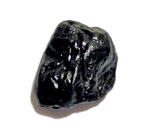Circumcision reduces herpes infection
Posted by: admin on: April 2, 2012
African men who underwent circumcision not only reduced their risk of contracting HIV infection, they also were significantly less likely to be infected with herpes simplex virus-2 (HSV-2) – also known as genital herpes, researchers reported.
-Team@CMHF
- Among uncircumcised men in the 15-to-49 age group, HSV-2 prevalence was 30.8% compared with a 17.1% prevalence among circumcised men (P<0.001), said Bertran Auvert, MD, professor of public health at the University of Versailles outside Paris, who reported on results from two surveys involving more than 4,500 participants.
- When variables were analyzed, circumcision led to a reduction of 27% in the risk of acquiring HSV-2 infection when compared with uncircumcised men, Auvert said here at the Conference on Retroviruses and Opportunistic Infections.
- Trials conducted in Orange Farm, South Africa, showed a significant decline in HIV infection among circumcised men.
- As those trial results became publicized, the rate of circumcision rapidly increased to the point where almost half the men in the region have now undergone the surgical procedure, Auvert said.
- At a press briefing, Auvert reported findings from three years after the rollout of the male circumcision projects in Orange Farm, a city of more than 100,000 people.
- He and his research team conducted two cross-sectional surveys, one in 2007 before the rollout, and the second in the 2010-2011 period. The random samplings included 1,198 men in 2007 and 3,355 men in the second survey.
- The researchers determined that medical male circumcision prevalence increased from 15.6% to 49.4% among participants ages 15 to 49.
- Compared with uncircumcised men, circumcised men were younger, more educated, more likely to be unemployed, more likely to be of Sotho ethnicity, and more likely to know their HIV status.
- There were no statistically significant differences in terms of religion or reported sexual behavior, including condom use and alcohol consumption, Auvert reported.
- This study shows that the rollout of male circumcision can have a [significant] short-term impact on the spread of HSV-2 among men, he said.
- This is an example that less is more, said Sharon Hillier, PhD, professor of obstetrics and gynecology at the University of Pittsburgh, who moderated the press briefing. She was not involved in the trial.
- This is an intervention that can be done one time and can provide years of benefits that are sustained, she told MedPage Today.
- We don’t hear enough about the long-term benefits at the population level from circumcision.
- This is really important news that confirms what we have learned in the past about [circumcision’s] effect in reducing HIV infection, but also [shows] that it is a multipurpose technology that is … preventing HSV-2. The fact that it is doing so much for men in preventing HIV and other infections is a story that is not being told enough.
- Hillier noted that in the US there have been movements to prevent circumcision.
- She added that “I don’t think we have done enough to get the word out that male circumcision is a powerful, life-long prevention of infection, and one that can have a real impact on this epidemic,”.
- Auvert suggested that he would like to see circumcision occur among babies, as is often performed in religious rites.
For further reading log on to
http://www.medpagetoday.com/MeetingCoverage/CROIMeeting/31507?utm_source=cardio-meetings&utm_medium=email&utm_content=mpt&utm_campaign=DCH
Search
- drchasrani: Difficult to get such a data, authenticated at that. Try Times of India online library
- rakesh pore: hi, where can i get genuine information about "10 most common drugs sold in india?" i want it for a local project
- nilesh dutta: sir, Plz give detail about MBA Sports Management Thanks and Regards


Leave a Reply